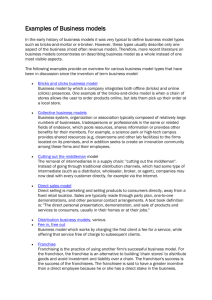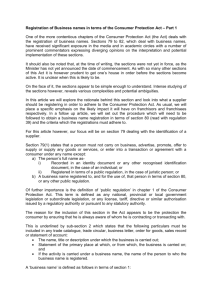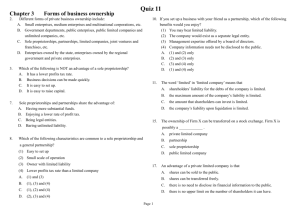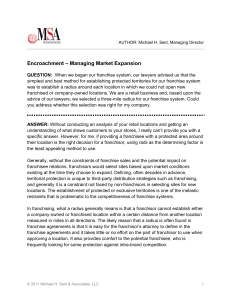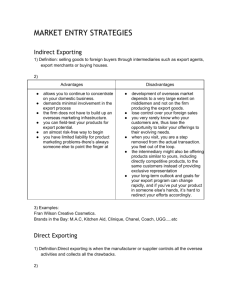Buying a Franchise
advertisement
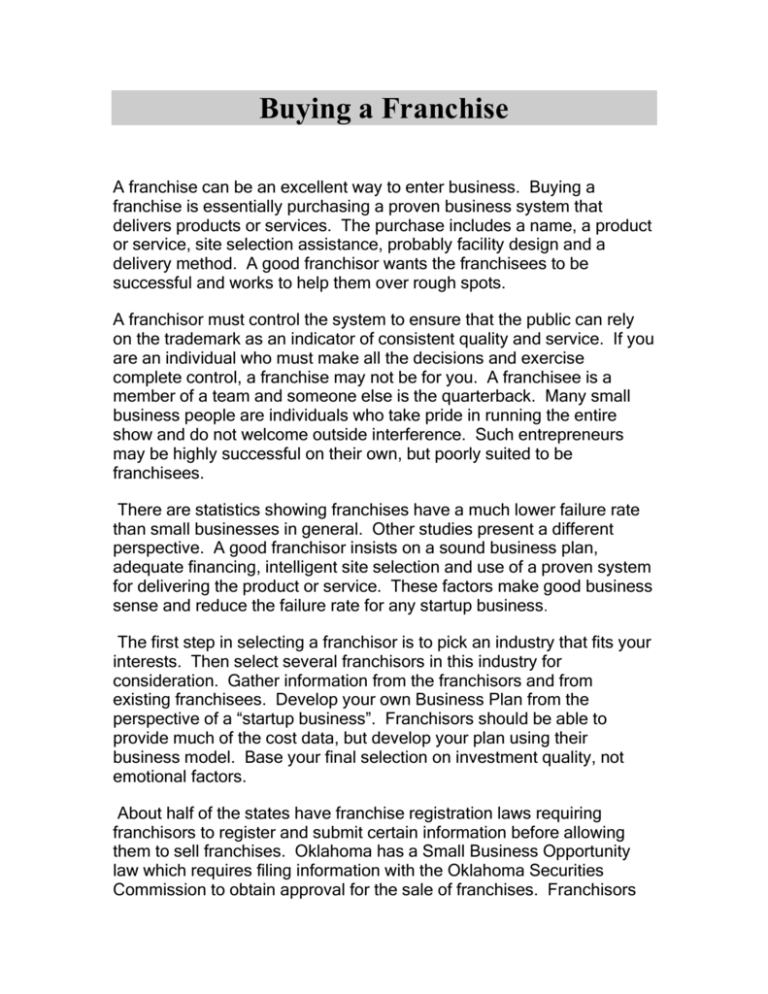
Buying a Franchise A franchise can be an excellent way to enter business. Buying a franchise is essentially purchasing a proven business system that delivers products or services. The purchase includes a name, a product or service, site selection assistance, probably facility design and a delivery method. A good franchisor wants the franchisees to be successful and works to help them over rough spots. A franchisor must control the system to ensure that the public can rely on the trademark as an indicator of consistent quality and service. If you are an individual who must make all the decisions and exercise complete control, a franchise may not be for you. A franchisee is a member of a team and someone else is the quarterback. Many small business people are individuals who take pride in running the entire show and do not welcome outside interference. Such entrepreneurs may be highly successful on their own, but poorly suited to be franchisees. There are statistics showing franchises have a much lower failure rate than small businesses in general. Other studies present a different perspective. A good franchisor insists on a sound business plan, adequate financing, intelligent site selection and use of a proven system for delivering the product or service. These factors make good business sense and reduce the failure rate for any startup business. The first step in selecting a franchisor is to pick an industry that fits your interests. Then select several franchisors in this industry for consideration. Gather information from the franchisors and from existing franchisees. Develop your own Business Plan from the perspective of a “startup business”. Franchisors should be able to provide much of the cost data, but develop your plan using their business model. Base your final selection on investment quality, not emotional factors. About half of the states have franchise registration laws requiring franchisors to register and submit certain information before allowing them to sell franchises. Oklahoma has a Small Business Opportunity law which requires filing information with the Oklahoma Securities Commission to obtain approval for the sale of franchises. Franchisors may be exempt from this requirement, if they have complied with Federal Trade Commission Uniform Franchise Offering Circular requirements. It is best to be wary of franchisors unable to produce state or FTC filing documentation and approval. When evaluating potential franchisors you obviously want a comfortable association with people who will cheerfully answer questions, but other factors must be evaluated. Does the franchisor have a successful system? How many franchisees exist? How long have they been in business? How many have failed? How many have been repurchased by the franchisor? You want to pay for a proven system, not for someone’s education. Is the franchisor’s system directly applicable to your plans? For example: a carryout sandwich shop is not the same as a sit down restaurant and a ten child day care is not the same as a fifty child operation. Does the franchisor have the name recognition and reputation to help build your business? The franchise agreement must be fair and, although it will probably be slanted towards the franchisor, your rights should be recognized. Does the agreement provide an exclusive geographic territory? Does the franchisor have a reputation of keeping it’s franchisees in business successfully? Does it have the people and financial resources to support you in becoming successful? What is the typical time period between startup and profitability? The franchisor should provide training in business management and specifics of their system. There should be provision for additional and future training for you and your employees. Will the franchisor assist in site location? Will the franchisor visit you and provide assistance after startup? Are you receiving value for your payments to the franchisor? Other franchisees can help answer this question, although recent franchisees may not be able to assess worth of assistance received to date. There are peripheral factors that must also be evaluated. Does the franchisor’s home office reflect a prosperous well managed company? Do the franchisor’s key employees have experience successfully operating similar businesses or are they just selling franchises? Is the franchisor financially stable? Does the franchisor’s vision for the future match yours? Does the franchisor use the latest technology to best competition? Is the franchisor involved in an abnormal amount of litigation? Is the franchisor selective in awarding franchises? Is the franchisor franchisee friendly? Is there a franchisee advisory council? Are there franchisees on the Board of Directors? Will your voice be heard? When you want to sell the business, what assistance is available from the franchisor? Will the franchisor remarket the franchise? What requirements must the buyer meet? What fees will be deducted from the selling price? Many of these questions do not have simple answers. Legal considerations may prevent a franchisor from providing information on expected profits or insisting on a specific location. A certain amount of litigation may be normal, although some franchisors have very few disputes requiring litigation. However, aside from legal prohibitions, all questions should be fully and accurately answered to your satisfaction.
